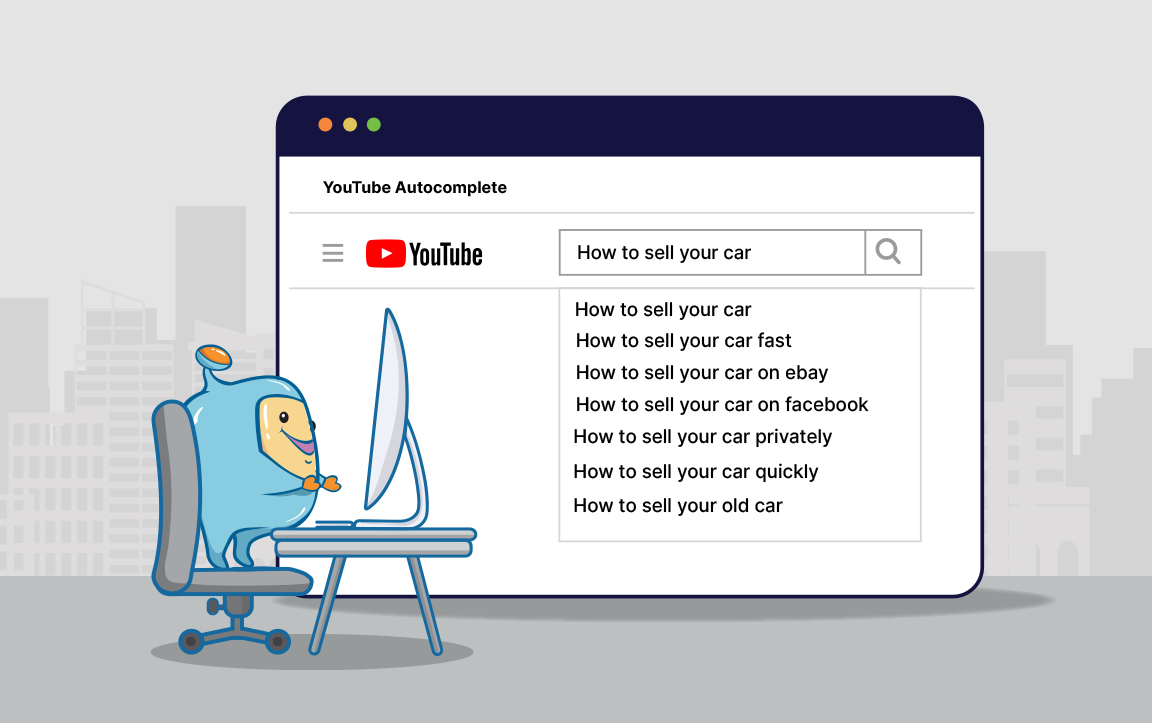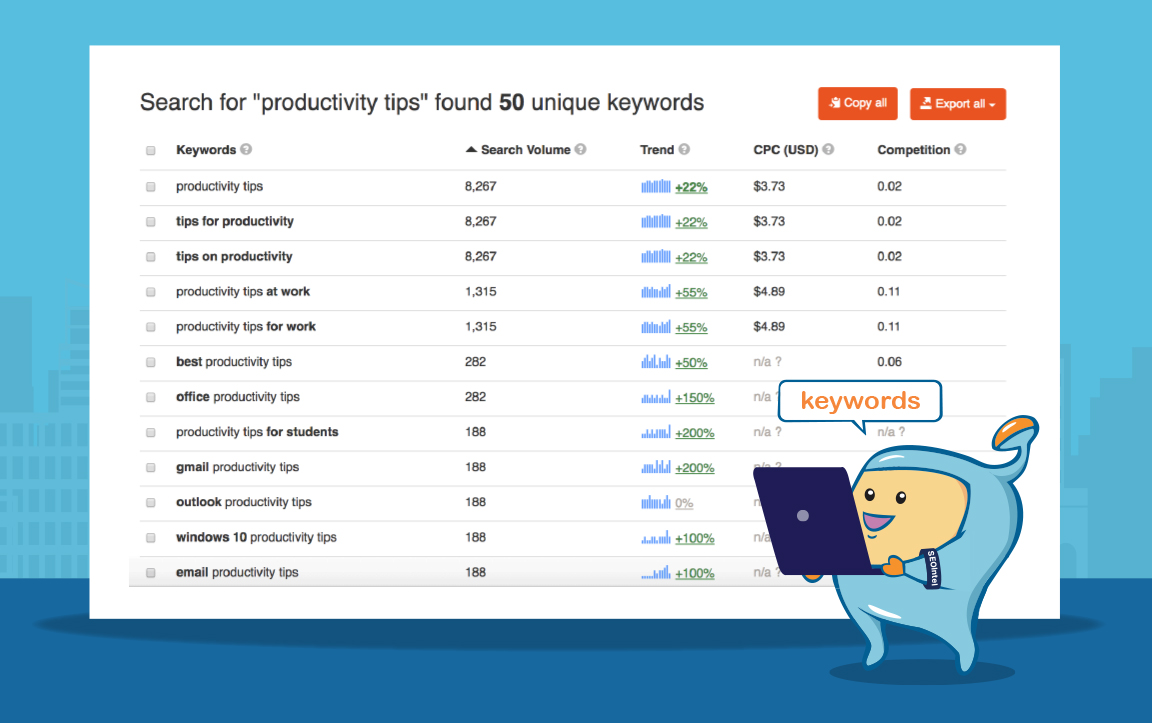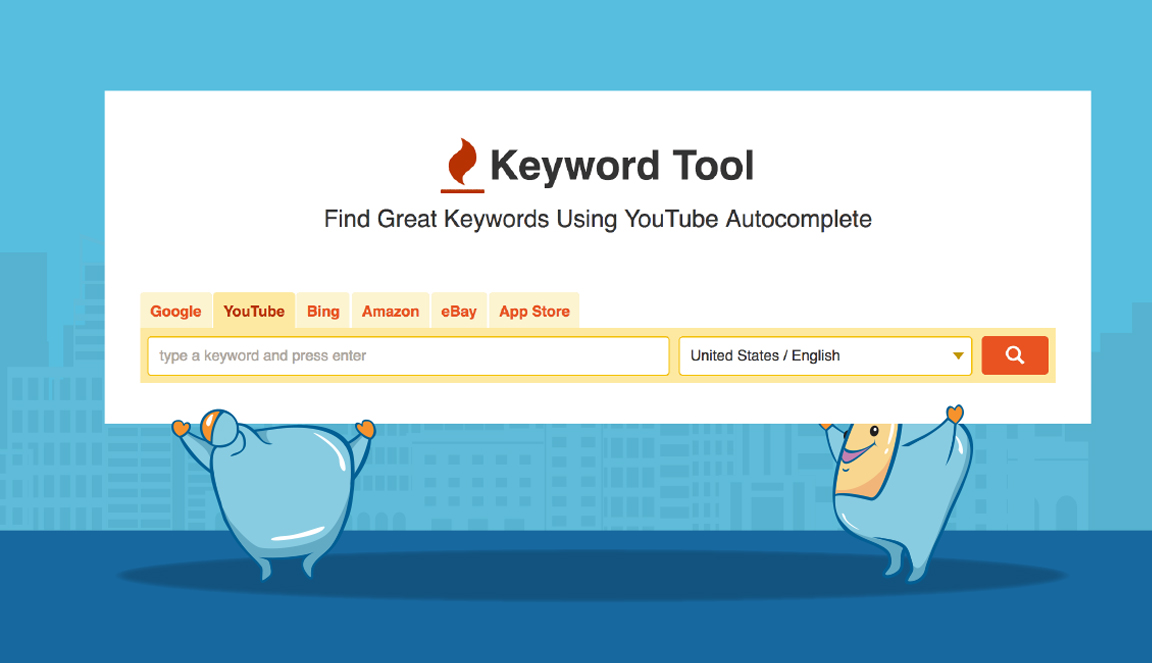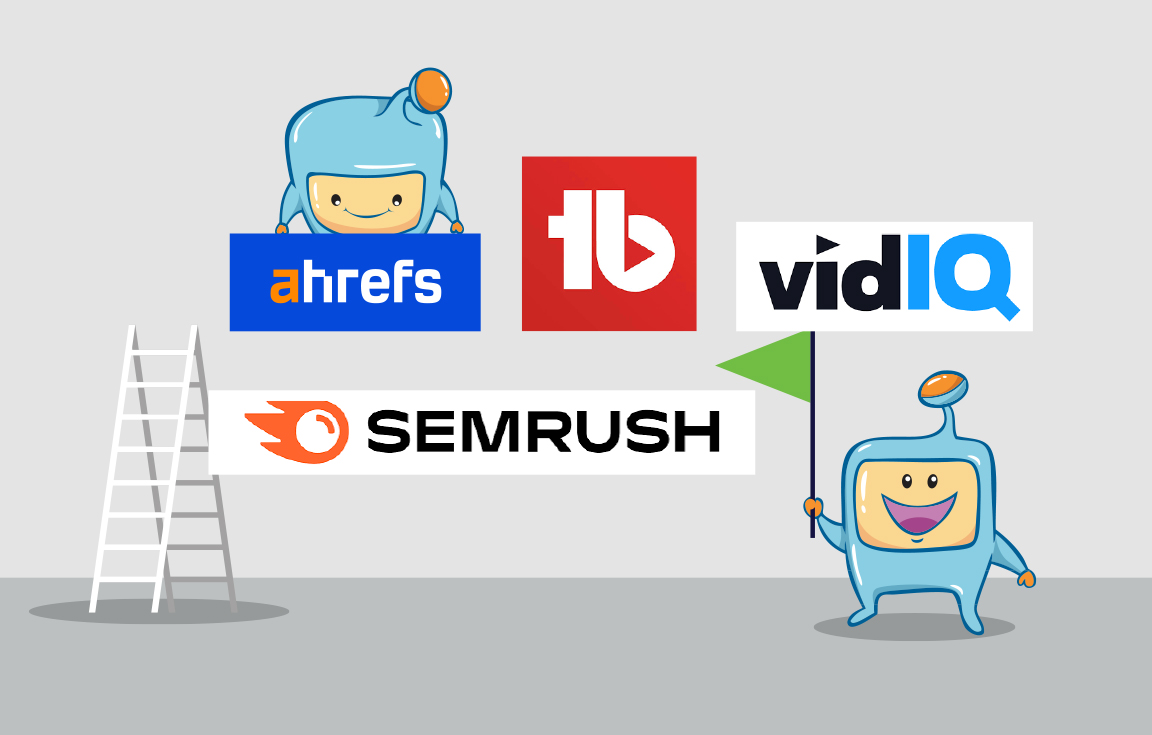Keyword research is a crucial aspect of optimizing video content for maximum visibility and success on YouTube.
Unlike traditional search engines, YouTube has its own search dynamics and user behavior, making it essential to understand the unique characteristics of YouTube search.
By conducting effective keyword research, content creators can enhance their chances of reaching their target audience and gaining more views and engagement.

Whether you're a novice or an experienced creator, this guide will equip you with the knowledge and tools to conduct effective keyword research and optimize your content for maximum impact.
Here is what you will read in this article:

YouTube keyword research is a critical aspect of optimizing your videos and maximizing their visibility on the platform.
Here are some key reasons why YouTube keyword research is essential for your channel's success:
Conducting keyword research allows you to optimize your video content to align with the search queries that users are entering on YouTube.
By targeting the right keywords, you can increase the discoverability of your videos and improve your chances of appearing in relevant search results.
This, in turn, enhances your opportunities to reach a wider audience and attract more views.
Keyword research helps you understand the specific terms and phrases that your target audience is using to search for content on YouTube.
By identifying these keywords, you can create video content that directly addresses the needs and interests of your intended viewers.
This ensures that your content resonates with your target audience, leading to higher engagement and greater viewer satisfaction.
YouTube is a highly competitive platform with millions of videos vying for attention.
Keyword research allows you to uncover keywords that are less competitive yet relevant to your content.
By targeting these niche or long-tail keywords, you can carve out a space for your videos and increase your chances of ranking higher in search results.
This gives you a competitive advantage over others who may be targeting broader, more competitive keywords.

Just like traditional search engines, YouTube has its own ranking algorithm that determines the order in which videos appear in search results.
Keyword optimization plays a crucial role in YouTube SEO.
By strategically incorporating relevant keywords in your video titles, descriptions, tags, and captions, you signal to YouTube's algorithm that your content is relevant to specific search queries.
This increases the likelihood of your videos ranking higher in search results, resulting in increased visibility and organic traffic.
Keyword research helps you align your content strategy with the topics and themes that are in demand on YouTube.
By understanding the search volume and popularity of keywords, you can identify the most sought-after content ideas and tailor your video production accordingly.
This ensures that your content is not only relevant to your audience but also has the potential to generate significant views and engagement over time.

YouTube videos have the potential to generate views and engagement long after their initial upload.
By conducting keyword research, you can identify evergreen topics and keywords that have enduring search demand.
By targeting these keywords, your videos can continue to attract views and engagement over an extended period, providing long-term value for your content and channel.
The process of YouTube keyword research involves several steps to identify relevant and high-performing keywords for your video content.
Here is an expanded explanation of each step:

The first step in keyword research is to brainstorm and generate initial keyword ideas.
Start by gathering a list of topics that are relevant to your video content.
You can use your existing keyword list as a starting point, but keep in mind that YouTube search intent differs from traditional search engines like Google.
Focus on informational queries rather than navigational or transactional ones.
Think about what topics, questions, or problems your target audience is likely to search for on YouTube.
YouTube's search engine is a valuable resource for keyword insights.
Enter your initial keyword ideas into the search bar and observe the suggested search terms that appear.
These suggestions provide insights into what your target audience is searching for on YouTube and can help you identify popular search queries related to your content.

To supercharge your keyword research efforts, it's essential to utilize advanced keyword research tools.
These tools can provide valuable data and insights to make informed decisions in optimizing your videos for maximum visibility.
Here are some popular keyword research tools specifically designed for YouTube:
YouTube Keyword Planner is a tool provided by YouTube itself and is integrated with Google Ads.
It is specifically designed for YouTube keyword research.
With this tool, you can research keywords and gain insights into their search volume, competition, and related keywords.
YouTube Keyword Planner allows you to explore keyword ideas and identify high-performing keywords that align with your content.
It's a great starting point for finding relevant keywords directly from YouTube's database.
VidIQ is a comprehensive YouTube optimization tool that offers powerful keyword research features.
It provides insights on search volume, competition, and related keywords.
VidIQ's keyword research functionality helps you discover new keyword variations and ideas.
It also suggests tags and keywords that can improve your video's discoverability.
With its intuitive interface and robust analytics, VidIQ is a popular choice among YouTubers for keyword research and overall channel optimization.
TubeBuddy is another widely used YouTube optimization tool that offers keyword research functionality.
It provides insights into search volume, competition, and trending topics.
TubeBuddy's keyword research features help you discover relevant keywords and assess their popularity.
It suggests tags and keywords to optimize your video metadata effectively.
TubeBuddy's browser extension and advanced analytics make the keyword research process more streamlined and data-driven.
Although primarily known as an SEO tool, Ahrefs also offers features for YouTube keyword research.
Ahrefs provides comprehensive keyword data, including search volume, keyword difficulty, and related keywords.
With Ahrefs, you can uncover valuable keyword opportunities for YouTube and optimize your videos accordingly.
It has an extensive database and powerful analytics that allow you to delve deep into keyword research and make informed decisions.
SEMrush is another versatile SEO tool that offers keyword research capabilities for YouTube.
It provides detailed keyword data, including search volume, competition, and related keywords.
SEMrush's YouTube keyword research features help you identify popular and relevant keywords for your video content.
It also offers insights into the performance of your competitors' keywords, allowing you to discover gaps and opportunities within your niche.
SEMrush's comprehensive suite of features makes it a valuable tool for YouTube keyword research and overall SEO strategy.
By leveraging these keyword research tools, you can uncover valuable keyword insights, assess competition, discover related keywords, and make informed decisions to optimize your videos effectively.
These tools provide data-driven solutions to enhance your keyword research process and increase the visibility and discoverability of your YouTube channel.

Analyzing competitor keywords can provide valuable insights and uncover untapped opportunities.
By researching and analyzing the keywords your competitors are targeting, you can identify gaps and find unique keywords to differentiate your content and gain a competitive edge in your niche.
Look for keywords that your competitors may have overlooked or keywords with less competition but still relevant to your content.
Once you've conducted thorough keyword research, it's time to optimize your videos for maximum impact.
Incorporate the relevant keywords you've identified into your video titles, descriptions, tags, and captions.
By aligning your content with these keywords, you'll improve your video's visibility and increase the likelihood of reaching your target audience.

Keyword research is an ongoing process that requires continuous monitoring and refinement.
Keep track of the performance of the keywords you've targeted in your videos.
Analyze data and metrics such as views, engagement, and search rankings to gain valuable insights into keyword effectiveness.
Use this information to make data-driven decisions and refine your keyword strategy over time.
Adapt to changes in user behavior and industry trends to stay ahead of the competition and maximize the growth potential of your YouTube channel.
Congratulations! You've now learned the ins and outs of YouTube keyword research.
By understanding the importance of keyword research, following a systematic process, leveraging YouTube's search engine and keyword research tools, analyzing competitor keywords, and optimizing your videos strategically, you are well-equipped to boost your channel's visibility and attract the right audience.
Remember, effective keyword research is an ongoing practice.
Continuously monitoring keyword performance, adapting to changes in user behavior and industry trends, and refining your keyword strategy will keep your channel ahead of the competition and maximize its growth potential.
Now, it's time to apply what you've learned and embark on your YouTube journey armed with the power of keywords.
Be creative, produce high-quality content, engage with your audience, and stay persistent.
With consistent effort and an optimized keyword strategy, your YouTube channel has the potential to thrive and make a lasting impact.